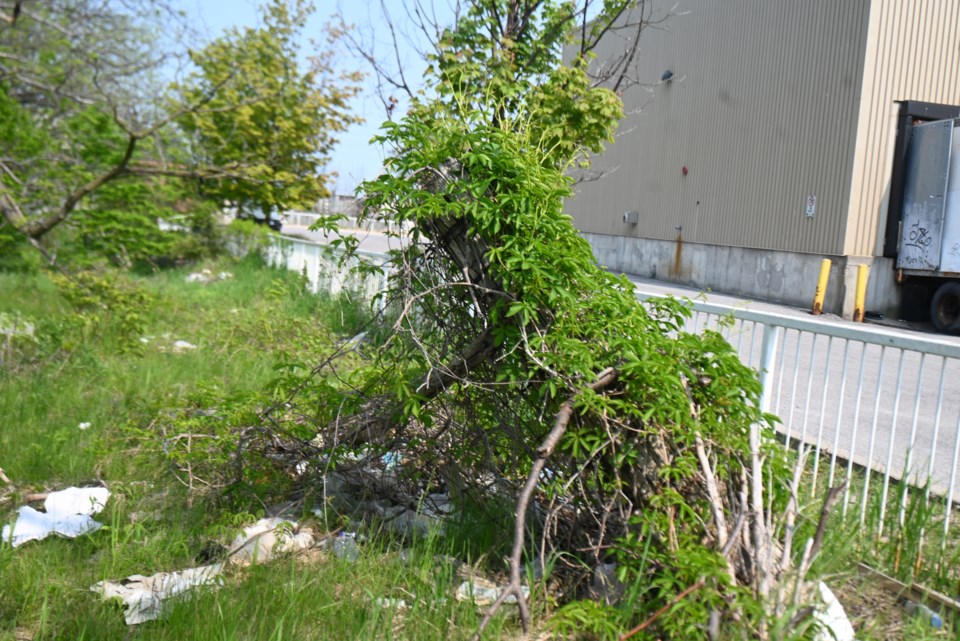Newmarket Mayor John Taylor is pushing for York Region to spend significantly to prevent increases in encampments in the coming years.
Regional council approved Taylor's resolution today, directing staff to report back by June with a plan for the rapid deployment of emergency and transitional housing “to meet exponential growth in persons experiencing homelessness.”
The concept is to see what could happen if staff had all the funding needed to address homelessness and encampments and how much that could actually cost.
Taylor said regional staff already have the solutions, but it is a matter of funding. He said encampments stand to grow significantly over the next few years, and the region should take steps now to mitigate that by helping those in need.
“We have a chance here to be one of the jurisdictions that said, ‘we’re not going to settle for that. We’re going to get ahead of that. We’re going to house people properly and with dignity,’” Taylor said. “The financial implications of solving the housing waitlists are far, far, far beyond us. The financial implications of solving this (encampments) are extremely challenging, but they’re not far, far beyond us.”
The discussion came with regional staff preparing a 10-year housing and homelessness plan. Staff plan to bring it forward in the second quarter of 2025 but presented an update highlighting there are many challenges, such as rental vacancy rates below one per cent, more than 14,867 on the subsidized housing waitlist and emergency and transitional housing facilities at capacity.
As far as homelessness, the region has projected it could go from about 1,300 today to more than 2,000 over the next five years.
Regional treasurer Laura Mirabella said staff has had discussions about what could be done with more funding.
“Literally blue sky, without any promises,” she said. “We got a couple of really complex problems. What would it take to solve them or to start working toward solving them? Let’s quantify that, and then let me see if we can look at our resources in totality and come to council with a recommendation.”
Councillors spoke supportively about the motion. Whitchurch-Stouffville Mayor Iain Lovatt described recently participating in the funding event the 360°kids Experience and how spending 20 minutes freezing in a mock encampment impacted him.
“Just lying on the ground in a tent and thinking there are not only children living like this but there are vulnerable citizens and residents of York Region that that’s their home, that’s their 365 (days) experience,” he said. “We’re raising an alarm. That’s only going to get worse in our communities.”
A substantial point of discussion was the need for the provincial and federal governments to also step up with funding. Taylor’s motion had a second portion that York Region reach out to other regions and the City of Toronto to form a housing advocacy group that would pressure upper levels of government.
“Tell them by the time we do it, we need you at the table,” Taylor said. “We’re tasking a big risk by going, getting ahead of it, but we need you at the table.”
The region has spent some extra dollars toward addressing housing in recent months. It added a $12.77-million boost into social services in its 2024 budget. It also added $4.3 million to support asylum seekers, but have pushed upper levels of government to make up for that funding.
Markham Mayor Frank Scarpitti backed the motion but said the region cannot take its foot off the gas pedal of lobbying upper levels of government.
“We, region, our local municipalities, are absolutely not equipped to spend the millions of dollars that are acquired for what we need to do to address homelessness,” he said. “We are aware of the urgency, we understand the responsibility, but we are not equipped, make no mistake.”
Taylor said it is true that advocacy must continue to upper levels of government, but there are still actions the region can take.
“Are we going to solve the problem? No. Are we going to do something because people are suffering? Yes.”



